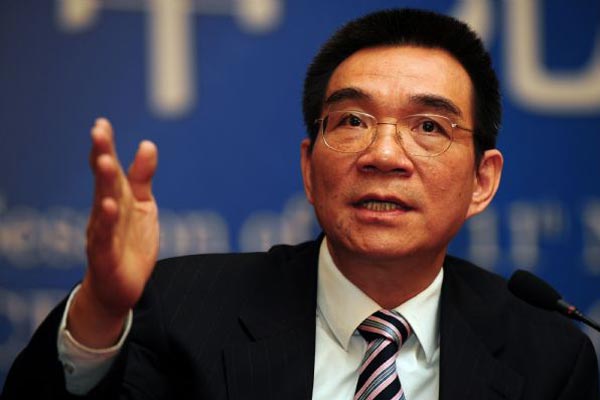Economist: China remains world's economic engine
- By Wu Jin
 0 Comment(s)
0 Comment(s) Print
Print E-mail China.org.cn, June 24, 2016
E-mail China.org.cn, June 24, 2016
|
 |
|
Justin Lin Yifu, one of China's chief economists. [File photo] |
China will probably remain the world's economic engine by contributing more than 30 percent to global annual economic growth, said Justin Lin Yifu, one of China's chief economists in a recent interview.
The constant economic downward pressure since 2010 has been majorly affected by external and periodical forces which can better explain the deceleration of economic growth in emerging economies, such as Brazil, India and Russia -- countries of the BRICS Group -- and high-performance and high-income economies, for example, South Korea, Singapore and China's Taiwan, the economist said.
The developed countries in Europe and North America, for political reasons, failed to carry out structural reforms such as lowering income, reducing social welfare, financial deleveraging and cutting governmental fiscal deficits amid the sweeping economic tsunami starting in 2008.
Therefore, due to weakening demands from the international market, the future of economic growth in China has no choice but to largely rely on the growth of internal demands, including demands for investment and consumption, Lin added.
When talking about the opportunities facing the Chinese economy, the economist pointed out four aspects. First, even though industries are plagued by overcapacity, such as iron and steel industries, and traditional labor-intensive industries lose their competitive edge as a result of growing labor costs, Chinese industries are still expected to be upgraded to a medium-to-high level.
Second, China has to continue with the construction of modern infrastructure, such as underground railways, pipes and wires.
Third, the environmental protection sector will generate enormous rewards in terms of social dimension.
Fourth, the urbanization drive will stimulate investment in housing, infrastructure and public services.
Lin stressed that all those four aspects constitute the supply-side reform which is different from the Keynesian theory.
Lin added that China has good conditions and advantages to boost investments in the country. There is a huge room for boosting infrastructure investment through fiscal policy; the government can implement proactive policies to encourage individuals to make investment since the country has a huge amount of personal deposits; use enormous foreign reserves to import technology, equipment and raw materials; it can adopt policies to lower interest rates and reserve ratios to increase money supply in a bid to support investment.
The economist concluded that if China can give full play to those policies to boost effective investments, China will still be able to maintain a medium-to-high economic growth rate of 6.5 percent in the ensuing 13th Five-Year Plan period (2016-2020).






Go to Forum >>0 Comment(s)